Cockatiels are known for their vocal abilities. But sometimes, their noises can be strange and unusual. This could indicate an underlying health or behavioral issue.
So, why is my Cockatiel making strange and unusual noises? It could be because of an underlying health issue, such as a respiratory infection or polyomavirus.
Stress, boredom, or lack of socialization can also cause strange noises. Other reasons that could cause this are trauma, hormonal imbalance, pain, discomfort, and sensory deprivation.
In this article, we’ll dive deep into understanding Cockatiel communication, identifying common causes of strange noises. We will also provide tips on responding to keep your Cockatiel healthy and happy.
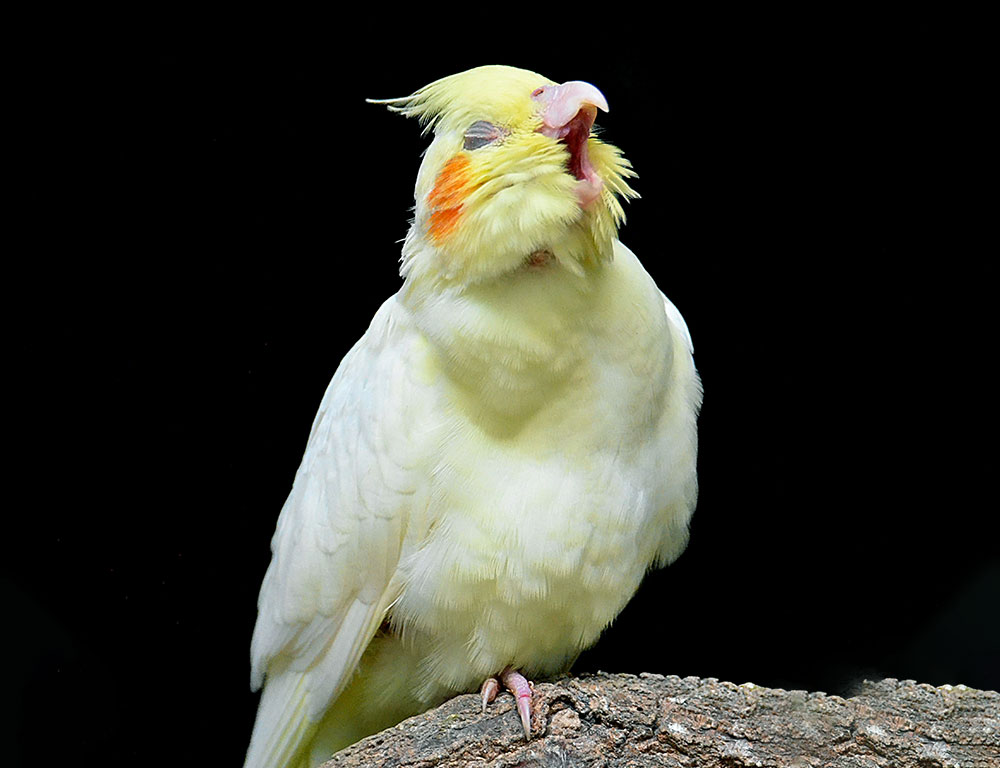
Why is my Cockatiel Making Strange and Unusual Noises? Here are the Reasons
Here are the causes of strange noises by your cockatiel:
1. Illness
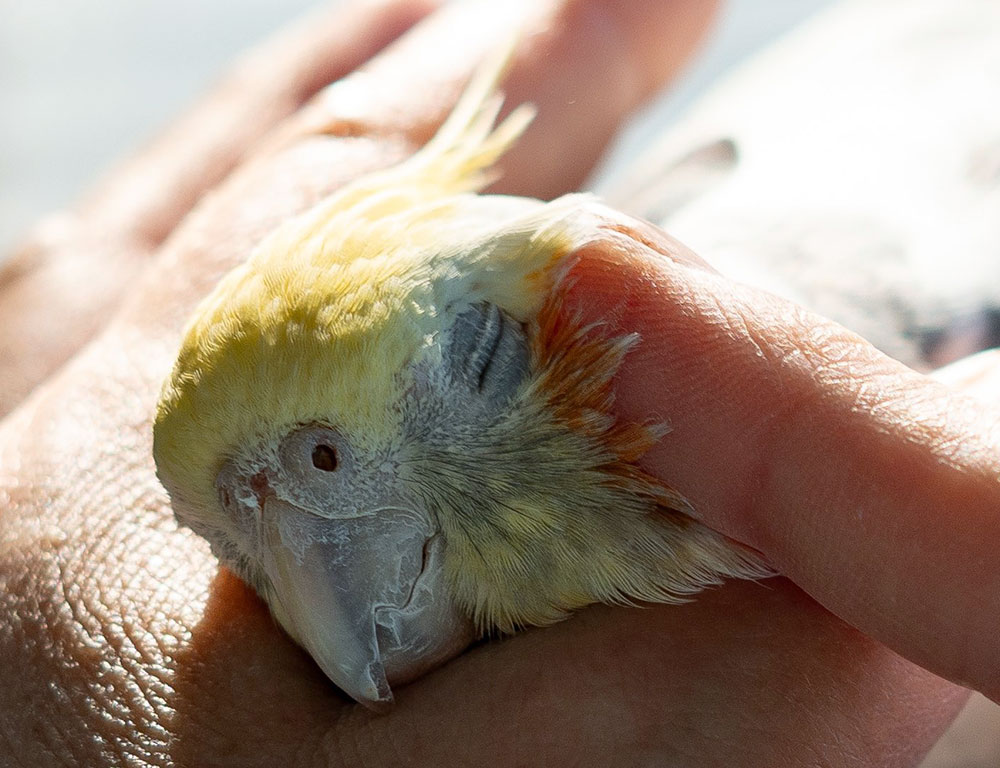
One common cause is a respiratory infection, which can cause coughing, sneezing, and wheezing. These symptoms can also be accompanied by nasal discharge and difficulty breathing.
Another illness that can cause strange noises in Cockatiels is polyomavirus. This highly contagious disease can cause severe respiratory problems, neurological issues, and even death. The bird may have difficulty singing and have a harsh, raspy sound to their voice.
2. Stress
This can be caused by various reasons, such as changes in their environment, routine, or diet. A stressed Cockatiel may make different unusual noises, such as chirping. These noises can signify that the bird is trying to communicate their distress.
3. Boredom
Cockatiels not provided with enough stimulation and activities can become bored, leading to strange and unusual noises. They may also engage in destructive behaviors, such as feather plucking or self-mutilation.
4. Pain or Discomfort
Cockatiels can experience pain or discomfort for various reasons, such as injury, disease, or parasites. While in such pain or discomfort, they will make repetitive, frantic calls.
5. Age-related Issues
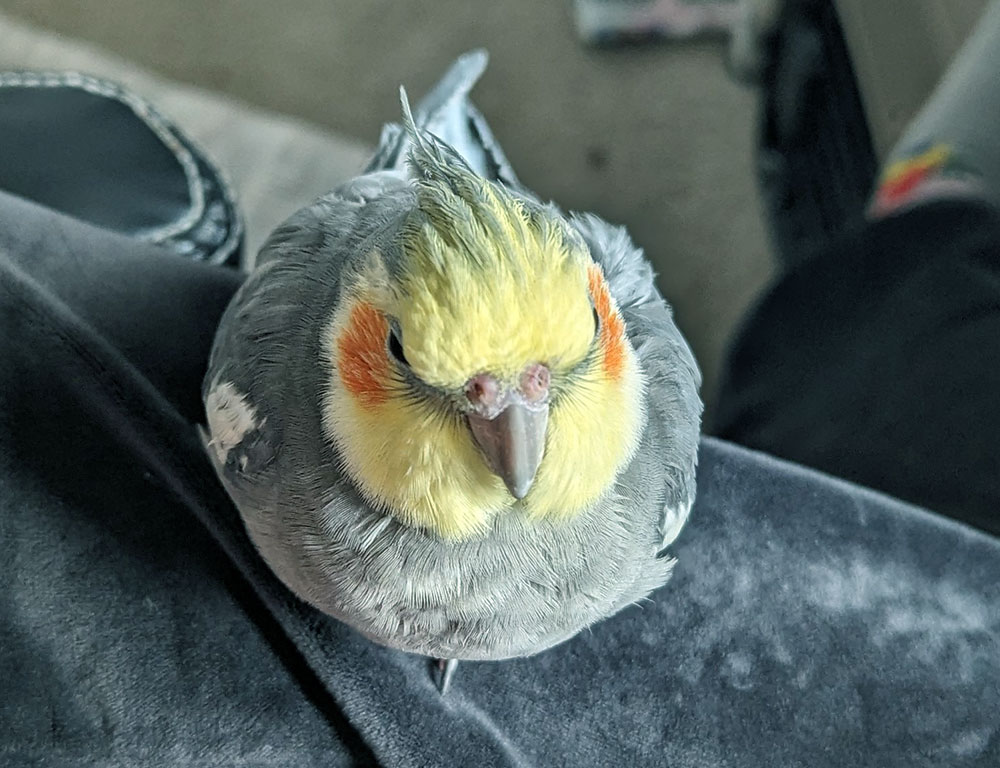
As Cockatiels age, they may develop various age-related issues that can cause strange and unusual noises. These issues can include hearing loss, vision loss, and neurological problems.
6. Trauma
Cockatiels can experience trauma or injury for various reasons, such as accidents or attacks by other animals. A bird that has been injured or traumatized may change their vocalization pattern and make a loud, harsh sound.
6. Sensory Deprivation
These birds require a stimulating environment with various sights, sounds, and textures. Sensory deprivation can cause multiple behavioral issues, including strange and unusual noises.
7. Environmental Factors
The environment in which a Cockatiel is kept can significantly impact its behavior and well-being. Environmental factors, such as temperature, humidity, lighting, and noise levels, can all affect a Cockatiel’s behavior. This causes strange and unusual noises in Cockatiels.
8. Hormonal Imbalances
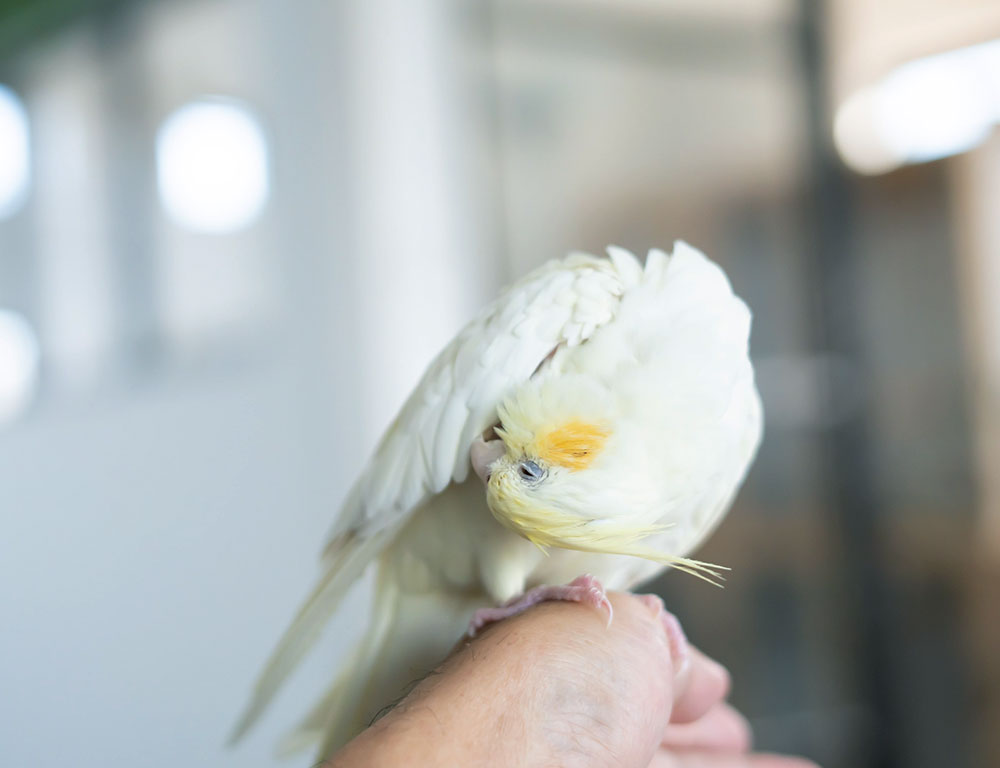
Birds experience hormonal imbalances for various reasons, such as age, diet, or stress. A Cockatiel with a hormonal imbalance may have its voice box affected, resulting in strange noises.
9. Genetic Predisposition
Some cockatiels may have a genetic predisposition to develop certain health conditions that can cause strange and unusual noises. These conditions can include but are not limited to, neurological issues, respiratory problems, and behavioral issues.
How to Stop My Cockatiel from Making Weird Noises
Here is how you should address this problem:
1. Provide Adequate Stimulation
This includes providing toys, perches, and other items for the bird to interact with. You also need to spend time with the bird and give it plenty of attention. This can help to prevent boredom and reduce the risk of strange noises.
2. Maintain a Consistent Routine
Provide your bird with a consistent schedule for feeding, sleeping, and exercise. Such a routine will reduce the stress and anxiety your Cockatiel may experience, which can help prevent strange noises.
3. Provide Adequate Nutrition
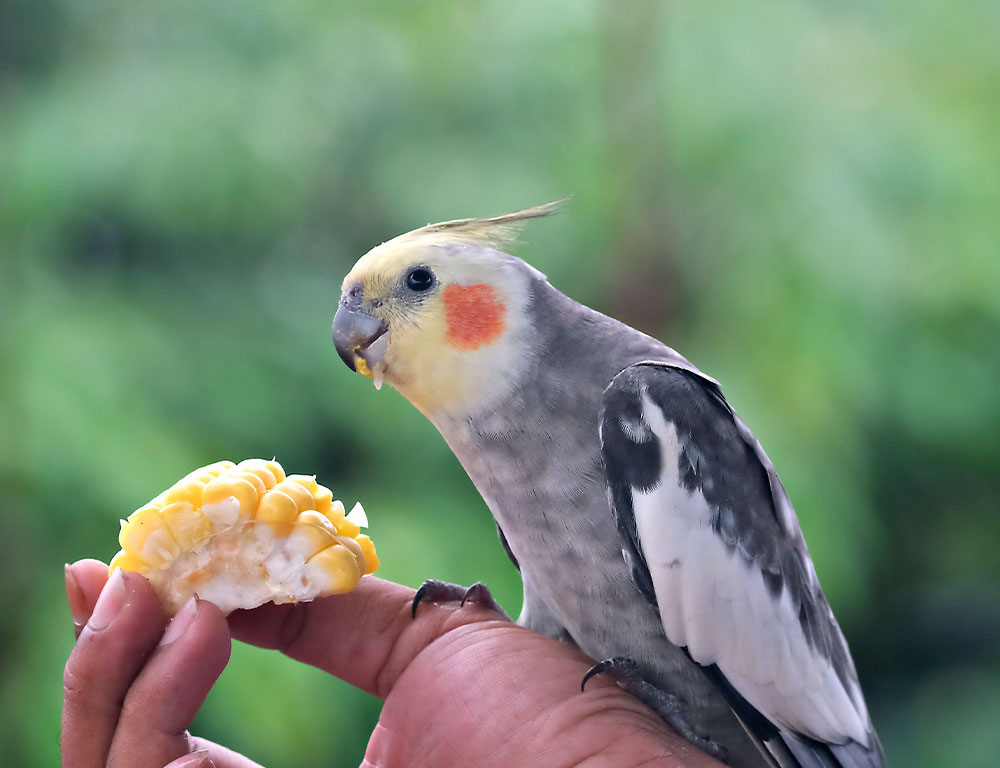
Proper nutrition is essential for maintaining your Cockatiel’s overall health and well-being. Ensure that your bird receives a well-balanced diet appropriate for its species.
4. Provide a Safe and Comfortable Environment
Providing your Cockatiel with a safe and comfortable environment. Ensure that the bird’s cage is appropriate for its species and is kept in a room with a comfortable temperature and humidity level.
5. Avoid Loud and Sudden Sound
Avoiding loud and sudden noises around your Cockatiel can help to reduce the likelihood of them making these noises.
This can include turning down the TV or music, avoiding vacuuming, or doing other loud household chores. Do not host loud parties or gatherings near the bird.
Types of Sounds Cockatiels Make and Their Meanings
Here are the sounds a cockatiel will make in different scenarios:
1. Whistling
Cockatiels who are well-socialized and comfortable in their environment are likelier to whistle. Whistling can also be a sign of a happy and content bird.
2. Chirping
A cockatiel can chirp for various reasons, such as to communicate with other birds, attract a mate, or express excitement or distress. If a Cockatiel is chirping excessively, it may signify that they need more attention or stimulation.
3. Squawking
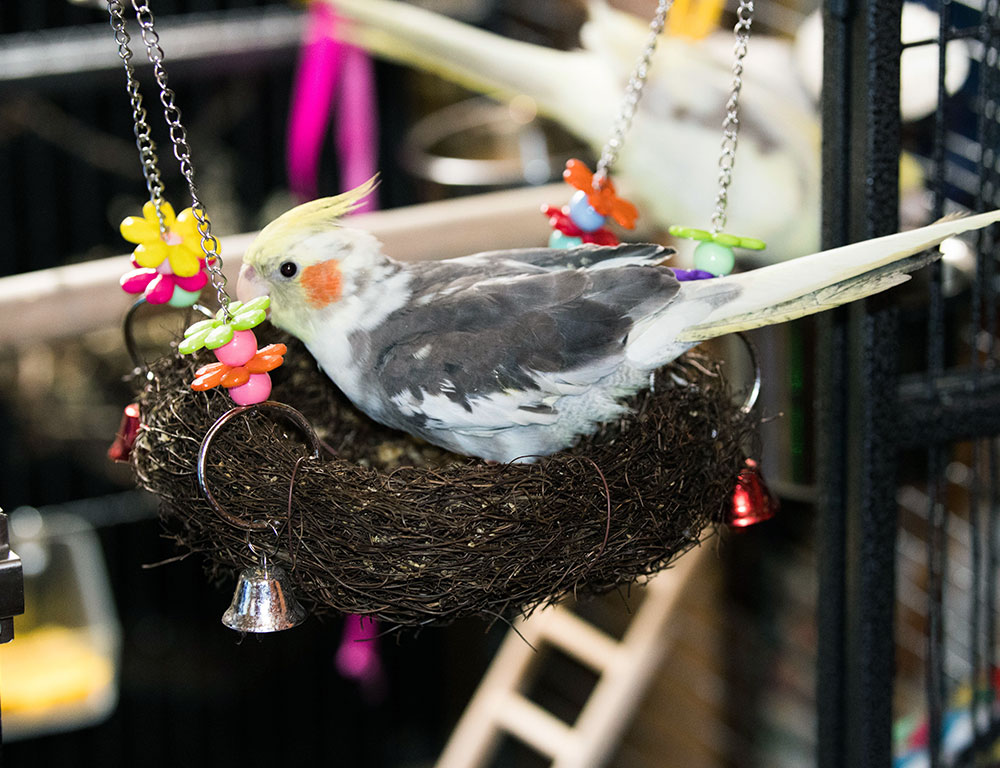
Squawking is a loud, harsh sound that Cockatiels make. It can be a sign of distress, fear, or aggression. Squawking can also be a sign of a sick or injured bird.
4. Screaming
As you know, screaming is a loud and piercing sound. It can be a sign of distress, fear, or pain. Yelling can also be a sign of a sick or injured bird. If a Cockatiel calls excessively, they’re distressed and need immediate help.
5. Purring
This is a low, rumbling sound. It is usually a sign of contentment and relaxation. Purring can also be a sign of a bird that is trying to communicate or express pleasure.
6. Croaking
Croaking is that low, guttural sound Cockatiels make. It can be a sign of distress, fear, or pain. Croaking can also be a sign of a sick or injured bird.
7. Mimic
Cockatiels are known for their ability to mimic sounds and phrases. They can mimic various sounds, including other birds, animals, and even human speech.
A Cockatiel that is well-socialized and comfortable in its environment is likelier to mimic sounds and phrases. However, not all Cockatiels will mock, and it’s not a requirement for a healthy and happy pet.
8. Hiss
A hiss is a sound that Cockatiels make when they feel threatened or are trying to protect themselves. It’s a warning sign that the bird is uncomfortable and should be cautiously approached.
9 . Contact Call
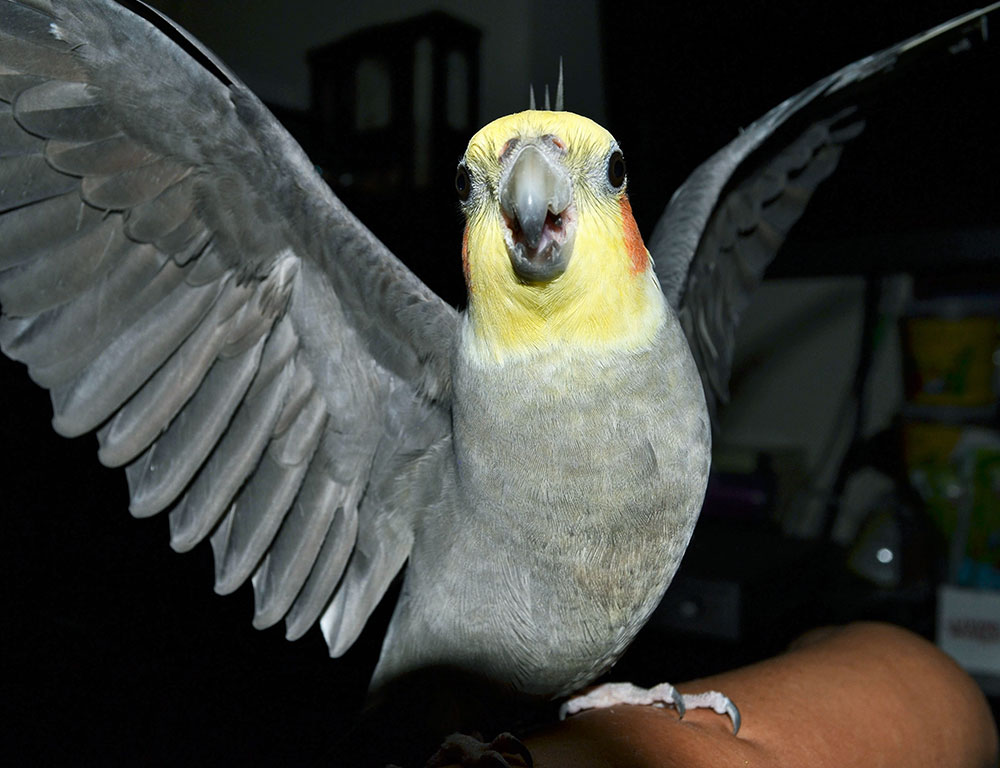
This is a sound that Cockatiels make to communicate with other birds or with their owners. It’s a way for them to let others know where they are or that they are nearby.
However, contact calls can vary in loudness and duration, depending on the bird. Some Cockatiels may make a subtle chirping sound, while others may make a louder, more distinct call.
FAQs
Here are answers to common questions about cockatiel noises.
No. It is not normal. It feels they are stressed when separated from you, which can signify that your Cockatiel has a strong bond with you. However, this behavior can also mean boredom or lack of stimulation.
Providing your Cockatiel with plenty of toys and activities to keep them occupied while you’re away can help.
Provide them with a comfortable and secure space, such as a cage or play area, where they can retreat if they feel stressed or uncomfortable. You can also try acclimating your Cockatiel to the presence of guests. Gradually expose them to different people in small, controlled settings.
Conclusion
We hope that the above answers the question, why is my cockatiel making weird noises? Cockatiels are known for making various sounds, but strange and unusual noises can indicate something is wrong.
Remember, the key to a happy and healthy Cockatiel is to provide them with proper care and attention. Regular veterinary checkups, a balanced diet, and plenty of exercises can help keep your Cockatiel voice in top condition.